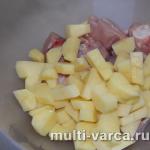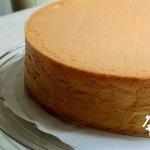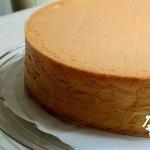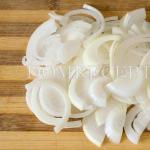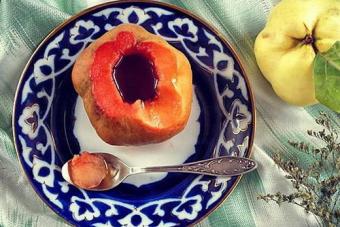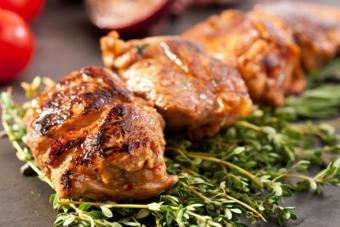Recently, it has become fashionable to keep a ferret at home. People who give birth to this animal must understand the full responsibility for the animal. After all, it is much more difficult to keep it than a cat or a dog. So, what are the features of caring for an animal like a ferret at home? How to feed such an animal and how many times?
Let's talk about quantity first. Ferrets should be fed many times. The best option is five meals. Of course, the amount depends on age. Little ones need to be fed seven times a day. Adult pets can be fed three to four times a day. That's how many times a ferret eats at home. What to feed a small predator? There are different types of feeding. Let's get to know them in more detail.
live food
What to feed a ferret at home? The first food option is live food. As you can imagine, a ferret is a predator. In nature, it feeds on small birds and small rodents. And what to feed a ferret at home according to this principle? Of course, these smallest birds, for example, chickens, small rodents (white mice), mealworms, fodder cockroaches, etc., should be included in his diet. As you understand, all this listed food should still be alive. Of course, in a metropolis, such a scheme is not very acceptable, but if desired, it is possible.
Dry food

What else can you feed a ferret at home? An alternative to live food is dry food. Such products are now produced in large quantities. But you need to choose a special food for ferrets. True, not all such products are of good quality. Therefore, you can choose food for kittens and nursing cats of the super premium class.
What to feed a small ferret at home? Suitable, in general, and dry food. But you need to train carefully. After all, even an adult ferret eats much less than a cat. One animal eats no more than a third of the cat's bowl at a time. If you choose this feeding option for yourself, be sure to make sure that your pet has water. Due to its deficiency, dehydration can occur. It is better not to take chlorinated tap water. Boiled or peeled is suitable for a ferret. You need to change the water once a day (at least!).

"Farshekashi"
A ferret may eat differently at home. What to feed the animal then? You can also feed him "farshekas". Such a power scheme is the most troublesome. For the correct compilation, it is best to contact a knowledgeable veterinarian. Some people, when they hear the name "farshekashi", think that a pet can be fed from the table. Under no circumstances should this be done! Fried, salty, fatty, smoked, baked goods, sweets - all this is not allowed to be given to a small predator.

And what is the composition of "farshekashi"? Offal and boiled porridge. This combination will slightly resemble the natural diet of a rodent in composition.
The best option for a ferret is poultry meat. This, by the way, is the most important component of the diet. Note that the ferret can not be pork! Sometimes the beast can be given lean beef or lamb. Fish is also allowed, of course, sea, but without bones. But just do not feed your pet with raw fish and beef alone. After all, in nature, they do not eat this in principle. Chicken heart, liver, turkey - all this can be added to the ferret's diet. It is also allowed to give him eggs and cottage cheese.

If you will make "farshekashi", then be sure to remember that cereals should not make up more than 1/5 of the animal's diet. Which ones are suitable? Rice, buckwheat, oatmeal and wheat. The ferret's diet should consist mainly of animal protein, which should never be replaced by vegetable protein.
Ferret at home
We have already described how to feed such an animal, now let's talk a little about its content.
- You can keep a ferret in a cage. It should be spacious enough, more than 60x80x45cm. The cage should close well so that the beast does not get out and put things in order without you. Do not keep a ferret on the balcony. If there is no other way out, then it must be glazed. All doors and windows must be closed. You must understand that a ferret is not a cat or a dog, it can fall out of the window. In summer, the room in which the animal is located should be ventilated; overheating is dangerous for the ferret. Do not place the cage in the sun, near heaters and batteries.
- To keep a ferret, you will need a bowl for food and a drinker (nipple or ball). The cage should contain a hammock, a house, and a toilet. Do not use fillers!
- Let the animal out for a few hours (preferably five). Ferrets need toys. The best option is plastic or latex. A ferret will happily play in a shoebox or sand box. You can make a whole labyrinth of pipes, sticks and ladders for the beast.

On the loose
If there is a desire, then you can keep a ferret in free range. But here are some factors to consider:
- in each room where the ferret runs, there should be a pair of trays;
- all the cracks where the beast can climb should be eliminated in order to avoid accidents;
- plants should be removed from the reach of the animal, the same should be done with rubber objects, faulty electrical appliances.

Conclusion
Now you know how to keep such an animal. And what is better to feed a ferret at home, everyone decides for himself, depending on financial and time possibilities.
Meat is only part of the diet, predators eat not only muscles, but also entrails (liver, kidneys, intestines) and even bones. A diet consisting of only one meat will cause irreparable harm to the ferret.
Ferrets should not be fed dog food, as this leads to malnutrition and death of the animal. Commercial dog foods are missing some important nutrients that a ferret needs to function properly. In addition, ferrets cannot digest the complex carbohydrates found in dog food. Ferrets must be fed large amounts of simple carbohydrates, proteins, and fats. Ferrets have a short gastrointestinal tract, they cannot eat a large amount of food at a time.
Pet stores sell commercial ferret food. If you don’t have the opportunity to buy special food, you can buy premium cat food (Nutro, Royal Canine) and super premium cat food (Hill's Kitten, Iams). Most of these foods are suitable for feeding ferrets.
Ferrets, like some animals, prefer a certain smell of food or food from one brand and are difficult to get to eat something else.
The best way to feed a ferret is to always have dry food in the cage. Raw food spoils within a few hours, especially in warm (hot) weather. This is one of the benefits of dry food. Convenience and shelf life is the second advantage, dry food also cleans teeth better than soft food.
Adult females require a quarter cup of food daily, so there is no need to fill the food bowl to the brim. If you have multiple ferrets, it's best to use multiple cups to feed them.
Ferrets fed dry food should always have free access to fresh water. The volume of water is approximately three times the volume of dry food. In the warm season, ferrets drink much more. Frets deprived of water for 24 hours stop eating. Water bottles are a convenient way to supply water. Baby and juvenile ferrets love to play in the water, polluting it with food and debris.
With proper nutrition, ferrets do not need additional food and treats, although many owners consider it their duty to pamper ferrets. Treats can be used to train ferrets, but be careful what you give as they will junk food leads to health problems.
When overfeeding sweets, the ferret can become obese, begin to deteriorate teeth and develop hypoglycemia. Be aware that some varieties of raisins (a favorite treat for many ferrets) are high in glucose, which causes diarrhoea. Dairy products that are good for ferrets also cause diarrhea.
Treats to indulge your ferret (limited quantities)
- commercial meat cat food (especially with liver flavor),
- raisins (several pieces a day),
- bananas (a small piece a day),
- milk (in a small amount),
- "Nutrical", "Doctor's Foster & Smith Vitacal" and other commercial treats and pastes for cats.
Foods to avoid:
- marshmallow,
- potato chips,
- peanut butter,
- ice cream,
- carbonated drinks.
When reprinting this article, an active link to the source is MANDATORY.
Ferrets are expensive pets to care for. Before you get this animal at home, you need to make sure that there are enough funds, opportunities and desire to create the most comfortable conditions for it. Today, it is no longer considered something outlandish and exotic to keep such a pet as a ferret at home. All owners of these cute little animals should know how to feed a little fluffy, because only following the right diet can ensure a long and happy life for a pet.
For some reason, many consider ferrets to be rodents, but this is absolutely not the case. They belong to the marten family and are predators. Ferrets are in many ways similar to weasel, ermine or mink. In their natural habitat, they feed on small rodents, sometimes they make their way into poultry houses if there are human settlements nearby, but a ferret does not lead such a lifestyle at home. What to feed in this case? Of course, the basis of the diet should be meat.
All food can be divided into three types: live food, dry food, minced meat. The first option is the most preferable, but it is unlikely that a ferret will be able to constantly eat small birds or rodents at home. What to feed the pet in this case? Many owners buy regular, ready-made dog and cat food, but this is a serious mistake. The fact is that the structure of the digestive tract in ferrets is different from other animals. They have a very fast metabolism, food is digested in an average of three hours, so two or even three meals a day will not be enough. Animals should eat a little, but often, about 7 times a day.

What you can feed a ferret is foods with a lot of protein and a minimum amount of fiber. In order not to be mistaken, it is best to buy ready-made feeds, they are fully balanced and contain the required amount of minerals and vitamins. If there is no place to buy canned food for ferrets, then you can opt for food for kittens. It should be super premium food and not lower, it is better to choose dry options. There are many manufacturers, so choosing is a matter of taste, so you can buy several packages and see which food your pet likes best.
You need to immediately determine what the ferret will eat at home. What to feed: dry prepared food or a natural diet? The first option is preferable, since the manufacturer has taken care of the availability of all nutrients, but this is the case if we are talking about high-quality feed. In the second case, it is recommended to consult with a veterinarian to make a menu. Otherwise, it will be difficult to choose the right products and balance nutrition.

What you can feed domestic ferrets is minced meat - it consists of some boiled cereals (buckwheat, oatmeal, rice) and offal, muscle meat. The diet should include fish, but not all of it is suitable for these predators. Ferrets are happy to eat trout, horse mackerel, mackerel, herring, flounder. The pet will not refuse cottage cheese, quail eggs, liver. In no case should you give ferrets sweets, smoked meats, bakery products, dairy products.
The animal is a predator and must eat mainly proteins, fats and carbohydrates. Proper nutrition also includes the introduction of vitamins into the diet.
Under natural conditions, animals feed on small rodents, chicks, frogs, but you need to know exactly what they feed at home so that the animals develop well, do not get sick and are cheerful.
Physiological features distinguish the ferret from many animals. Other pets (cats, dogs) can safely eat human food, but in no case should a ferret be given food from the table. The digestive system of a predator digests food very quickly. Feeding on their own birds, fish, carrion, ferrets eat them completely with bones, internal organs, wool.
From vegetation, animals consume the food that is in the animal they eat. Any amount of food is digested in a short time, within four hours. The size of the intestines of a ferret is small and the enzymes there are the simplest.
For this reason, plant foods are removed intact. In addition, it happens that sand is formed in the urinary tract, the presence of which is fraught with a loss of the shine of the animal's coat.
How to properly feed ferrets
It is very important that taurine is introduced into the body daily with food. The amino acid has a positive effect on the functioning of the brain, heart and liver. Taurine is found in poultry meat (chickens, ducks, turkeys). Ferret meat should be consumed every day.
As for cereals, if the cereal is very boiled, it should make up a maximum of 15 percent of the entire mixture used. Croup helps to increase intestinal motility. To make food closer to that used by ferrets in the wild, you can purchase live food in specialized stores.

Food that is balanced according to the rules includes:
- 10 percent carbohydrates from plants
- 30 percent fat
- 60 percent animal proteins
Ferrets should not be fed frequently, they have their own diet. Experts know how many times a day to feed a ferret. For good development and motor activity, ferrets should be fed 2 times a day. Babies from 0 to 2 months should eat 4 times a day, from 2 months of age it is supposed to eat 3 times a day.
Ready mixes
In the absence of the necessary products, it is best to eat ready-made feed. At the same time, it is necessary that they do not contain synthetic fatty additives and protein components. For the manufacture of ready-made mixtures, animal muscles and poultry meat are used. You can occasionally give your ferrets high quality cat food, but not often. The most suitable are Eagle Pack or Yams (for kittens).
The main advantage of this type of food is their preservation for a long time. When feeding an animal with a ready-made mixture, it is necessary that it has free access to water. Insufficient amount of water leads to dehydration, making the animal inactive and unhappy.
When using ready-made feeds, it is better to water the ferret with boiled water in large quantities.
Proper preparation of porridge
The best food for pets is dishes prepared from natural quality products, which is very important for the health of pets. To do this, you need to know the exact recipes for cooking, which will retain useful substances.

The most common and healthy food for ferrets is minced meat. There are several recipes for cooking a dish beloved by animals. To prepare high-quality minced meat you need:
- chicken necks - 2 kg
- chicken stomachs - 1 kg
- oatmeal or buckwheat
Minced meat from the necks and stomachs is mixed with boiled cereals, divided into separate portions and placed in the freezer.
Immediately before use, the pieces are thawed and bioadditives are added to them. Such food can be given to animals at any age.
The next minced meat can only be fed to adults. For its preparation is taken:
- chicken or turkey meat - 480 g
- beef heart - 100 g or liver - 50 g
- veal - 150 g
- poultry fat - 20 g
- fish with a small amount of fat - 150 g
The meat should be cut into small pieces, the bones are not cut, everything is poured with boiling water. Boil the meat over low heat for 10 minutes. Next, it must be separated from the bones, and the skin, cartilage and fat should be left. Rice is placed in the finished broth, it is possible with the addition of other cereals. Cook for 30 minutes until the cereal is soft. The fish must be cut into large pieces, the head and bones are also used.
The ingredients are mixed, then you need to add cottage cheese, eggs, chicken and fish fat, vitamin supplements. Everything is thoroughly mixed again and twisted through a meat grinder. The mixture is divided into portions and placed in the freezer. Each adult male consumes 200-400 g of food at a time, the female eats 2 times less. For each of the recipes, exactly the number of products that is indicated is used. You can’t change the recipe at your discretion, you need to maintain a balance.
Biological additives and vitamins
All animals require vitamins for a healthy diet. Vitamins A, D, E are taken in courses, a month should be added to food, a month - take a break, one drop per animal. The need is to use fish oil, males 2 drops, females expecting offspring - 3.
It is good to add brewer's yeast and biological supplements with biotin to the feed. All additives must be used in accordance with the instructions, otherwise you can harm your health or even destroy it.
Delicious treats
Ferrets have their own eating habits. Since what one animal loves may not be tolerated by another, there are no specific recommendations. Mostly, ferrets enjoy eating bananas, melons, cheeses, and oatmeal cookies.

The stores sell special delicious food for ferrets. Some animals love treats that cats love, such as dried liver. Each ferret will eventually show their preferences through trials. It is important to know that treats are not given out every day, but as an incentive prize and for educational purposes. The constant eating of sweets is addictive.
What should never be fed to a ferret? It is strongly not recommended to give chocolates or sweets to ferrets - this will adversely affect the health of the animal, lead to serious illnesses, not to mention the fact that the ferret will become sad and lethargic.
When purchasing, each owner must be prepared for constant care and special feeding. Pay special attention to food. The life of these funny animals of the weasel family is short-lived. Ferrets live a maximum of 6 years. With illiterate feeding and improper maintenance, the life of these cute pets will be significantly reduced.
Recently, keeping ferrets at home has become a popular trend. Nimble and playful - these funny little animals give their owners a lot of pleasure and pleasant moments. Among the large number of representatives of the mustelid family, ferrets are by far the most predatory. They live mainly in forests, but some fearless specimens do not hesitate to drop into nearby villages, and especially extreme individuals even settle in human homes. So what does a ferret eat?
Taking into account the fashion for ferrets - ferrets and furo, the issue of feeding them at home becomes relevant. Ferrets are carnivores and plant foods are not suitable for their digestive system. The easiest food option for a pet is special food designed to meet all the needs of animals. Particularly compassionate owners manage to diversify the menu with products that are similar in energy value to those that the animals consume in their natural habitat.
Their habitat is represented mainly by forest areas: they have chosen the edges of the forest, bordering water bodies.

They live in makeshift burrows, and the entrance to their dwelling is often located under an old stump. They spend most of the daytime at the "front door" in the bush, from where it is rather problematic to see them. The peak of their activity falls on the time after sunset and in the wee hours. In winter, the nocturnal predator gains weight up to 2.5 kg, and by the summer it loses weight significantly. It reaches a length of about 0.5 m, and the life span in natural conditions is about 6 years.
In the wild, he feasts on what he can catch. The ferret almost does not eat plants, its diet consists mainly of food of animal origin: small rodents, moles, shrews and field mice. It does not disdain amphibians either: it feeds with pleasure on lizards, frogs, newts and other creeping reptiles. As a delicacy, he prefers hedgehog meat. Despite the prickly needles of this insectivore, the animal fearlessly attacks the animal. Sometimes the ferret destroys bird nests in search of small chicks. If the opportunity presents itself, it will easily catch a muskrat or even a hare!

They are excellent hunters with incredible flair and intuition. They are able to sneak up on the victim so silently that sometimes such shy and sensitive birds as black grouse and hazel grouse fall into his paws. You will not frighten this animal even with a snake, regardless of whether it is a poisonous viper, or a harmless one. Catching large insects is also on his shoulder.
Running into rural settlements, he does not hesitate to treat himself to local chicken or goose, depending on the existing options, and in order to satisfy the feeling of hunger, one individual is often not enough for him.
Ferrets are notorious for their habit of leaving food for a rainy day. No matter how full he may be, he will continue to hunt until he makes a solid supply of provisions, hidden in a place hidden from prying eyes.
In the warm season, mother nature is favorable to the inhabitants of the forest, providing food for them in large quantities. However, with the onset of cold weather - the time when the hares have matured, the chicks have grown, and the frogs have fallen into suspended animation until better times, the list of "products" is significantly reduced. But even in this situation, born hunters have learned to survive: a great sense of smell helps them find prey under a deep layer of snow. Rats, mice, hazel grouses and other birds hiding at night - no one escapes their keen eyes.
Pet Ferret Diet: A Complete List of Allowed Foods
Since the ferret is a vivid example of a predatory animal, it is necessary to regale it, first of all, with meat.

The basis for its gastronomic delights are chicken or turkey meat and lean veal. Due to the fact that beef and pork are less digestible, it is not recommended to offer this meat to a ferret. To make your diet more varied, you can include fish products in your diet. The animal eats both cod and herring with pleasure. Trout, mackerel and other tasty bug-eyed representatives are also suitable.
In their natural habitat, the ferret eats its prey whole. In this regard, it is recommended to include hard meat in home meals, leaving bones and cartilage. With great pleasure, he will eat a chicken neck or head. But it is better to refrain from eating the legs: they consist of tubular bones, and poorly chewed pieces can injure the pet’s digestive tract.
A well-composed diet is a guarantor of the health and longevity of any creature on the planet. Ferrets have a fast metabolism, which requires a particularly careful approach to feeding them. Even the smallest mistakes are fraught with the appearance of serious diseases.

Being in the bosom of the wild, ferrets in the choice of the main "meals" are surprisingly stable.

Individuals living in conditions of increased home comfort have not gone so far from their predatory ancestors.
The nutrients they need on a daily basis are found in the following foods:
| Meat | Seafood | Eggs | sub products | Kashi | Fruit and berry | Vegetables | Dried fruits | Greenery | live food |
|---|---|---|---|---|---|---|---|---|---|
| mutton | flounder | quail | liver | Barley | persimmon | pumpkin | figs | parsley | mice |
| horsemeat | mackerel | chicken | chicken giblets | rice | banana | tomatoes | raisin | scalded nettle | insects |
| beef | herring | a heart | buckwheat | Apple | vegetable marrow | dates | dill | worms |
|
| turkey | cod | kidneys | wheat | strawberry | cucumber | dried apricots | chickens |
||
| hen | trout | pear | broccoli | prunes | |||||
| quail | shellfish | watermelon | Bell pepper | ||||||
| crustaceans | melon | radish | |||||||
| cherry | |||||||||
| grape | |||||||||
| cherries |
From fermented milk products, you can offer the animal kefir, sour cream, fermented baked milk or low-fat cottage cheese, and among the dry foods, the favorites are Acana, Frettchen4you, James Wellbloved Ferret Complete and Bosch Totally Ferret. When compiling a daily diet, you should remember to maintain a balance between the products used.
Feeding scheme for ferrets
Before you get this cute animal, you should form a clear position regarding the feeding schedule.

Despite the common belief that ferrets can be fed in the same way as other popular pets - cats or dogs, this judgment is erroneous.
There are several time-tested schemes that should not be mixed with each other.
An approximate daily menu should be based on the following ratio:
- 32-35% animal protein;
- 3% vegetable fiber;
- 22% fat;
- 20% carbohydrates.
Taking into account the peculiar taste needs of these animals, 3 variants of feeding schemes were developed, based on natural, dry and live food.
Nutrition based on natural food
Every day, a mature individual consumes about 400 g of food, young animals require half as much food, and babies even less.

Having given preference to natural nutrition, one should be aware that natural food and leftovers from the table are completely different and incompatible concepts. Unlike other domestic animals, ferrets are quite picky about food. Approximately one third of the daily ration should consist of cereals, preferably a mixture of several varieties. The remaining 2/3 of the feed should consist almost entirely of meat:
- seafood;
- bird;
- veal, lean beef or lamb.
When feeding a pet with food of natural origin, in no case is it recommended to use dry food, and vegetable protein should not be used instead of animal protein. The best option is mince kasha, which is a pre-made food. It is obtained by mixing one third of boiled cereals with two thirds of minced meat, and it must consist of both meat and offal.
The porridge prepared in advance must be divided into small parts and placed in the freezer. The right amount of food should be removed from the freezer and put in the refrigerator: by morning the food will be ready for use. It is not recommended to feed too cool food, it should be warmed up to room temperature.

A bonus on the menu can be a boiled egg, which is recommended to be included in the diet three times a week. Quail eggs, on the contrary, can be given daily in any form.
These little predators do not like the vegetable menu very much, and it does not represent a special energy value for them. Some hard vegetables even pose a danger to the life of the animal: pieces can block the esophagus, damage tooth enamel and even provoke suffocation. Before offering a pet, they should be pre-boiled and finely chopped. In this form, they can also be added to minced meat, but it is necessary to check that the vegetable mixture is no more than 10% of the total mass of the feed. From time to time, any ferret treats should be included in the diet: a slice of cucumber, persimmon or banana with cheese in the company with a small amount of cottage cheese and energy paste. However, do not lose sight of the fact that such food is not suitable as everyday food.

The basis of the daily diet of the animal: meat and offal, chicken, turkey, boiled vegetables, mainly carrots and zucchini and cereals: buckwheat, rice, wheat and oats. It is very important to remember that plant foods are not suitable for the body of a ferret, but fish oil will only benefit him.
It will not be superfluous to use vitamins: roboran, normite, brewer's yeast, multivitamins for cats, etc. You should be careful about the dosage, because. hypervitaminosis in terms of the degree of negative impact is just as dangerous as beriberi.
live food
This is a completely natural variety of food, but due to its specificity, it is not suitable for most owners, although it is sold in almost every pet store.

The predatory nature of beloved pets can lead to a stressful state of their owners. Feeding living creatures - chickens, mice, mealworms, insects, marble cockroaches will bring joy only to the ferret.
Nutrition based on dry food
This is a simplified version of feeding: a specialized dry food developed for these animals makes it possible to significantly save time for their owners.

It contains all the nutrients necessary for the animal in the right amount and correctly balanced. However, during dry feeding, special attention should be paid to drinking: the animal must have open round-the-clock access to a drinking bowl with fresh water.
In the process of choosing the right food for your pet, you should very carefully observe the reaction of the animal to a particular product, and, if necessary, make appropriate adjustments.
Similar to food for pets, food for ferrets is available in the economy, premium and super premium segments. It is very important to carefully read the composition: there should be about 36% animal protein, 5% carbohydrates and 22% fat.
In the case when it is not possible to buy a "dry ration", you can try replacing it with premium cat food, in which it is desirable that the presence of proteins be around 33%. This feeding option is possible only in exceptional situations, basically, experts agree that cat food harms ferrets. It is undesirable to buy dog food.
In order to assess how well the nutrition is chosen, one should examine the coat: a shiny coat and the absence of dandruff are the first signs of a well-balanced diet. To these "beacons" you can also add a normal chair. If it is not possible to choose the right nutrition scheme, you should consult a veterinarian.
Despite the seeming omnivorousness of these animals, there are a number of restrictions on the use of products: muffin or low-quality cheap food can lead not only to a digestive system disorder, but also to the appearance of serious intractable diseases.
Human food is not always suitable for ferrets, so it is undesirable to feed them food from the common table. Citrus fruits, for example, can even increase the acidity of their stomach. It is strictly forbidden to give ferrets milk. This product contains lactose, a substance that is indigestible by the body of animals and eventually causes diarrhea.

On the blacklist are:
- nuts;
- citrus;
- garlic;
- ice cream;
- salt;
- chocolate;
- sugar-containing products (chocolate, cookies or sweets);
- pickles;
- grilled meat;
- sparkling water;
- soy products;
- smoked meats;
- pork;
- soups.

Some varieties of fish are also contraindicated for a ferret. For example, species containing trimethylamine oxide are blue whiting, haddock, pollock, hake, hake, cod and saithe. This substance transposes iron, resulting in anemia in animals. This disease is very dangerous for young individuals. It is accompanied by a decrease in hemoglobin levels, diarrhea, vomiting, loss of appetite and a slowdown in growth. Also not recommended for consumption are fish species containing an enzyme that destroys vitamin B1 - capelin, anchovy, sprat, silverfish, burbot, smelt, some types of herring, perch, sardines, crucian carp, sprat, snipe, mavrolikus and sardinella.
Feeding specifics of ferrets at the stages of growth, molting and pregnancy
The changes in ferrets' bodies that occur during this period cause them to expend more energy, so the diet needs to be fortified with more nutrients. Portions should be made larger than standard and the daily number of feedings should be increased.

The animal loves fish oil very much, which does not tolerate children at all. It can be dripped directly onto the surface of the tongue: 3 drops for males, 2-3 drops for females and the younger generation. During these intervals, the presence of B vitamins, iron, phosphorus and calcium in the diet should be increased.
Video - Feeding ferrets at home
Caring for a ferret is quite interesting, but at the same time, very troublesome. A carefully balanced diet will be the guarantee of a good and cheerful mood for your pet. By observing the simple rules of proper nutrition, observing the behavior of the animal and its reaction to one or another food, you can gradually find a middle ground and ensure a long and comfortable existence for it. And then communication with the animal will turn into an exciting event, and will bring a lot of pleasure to both the owner and the pet.
